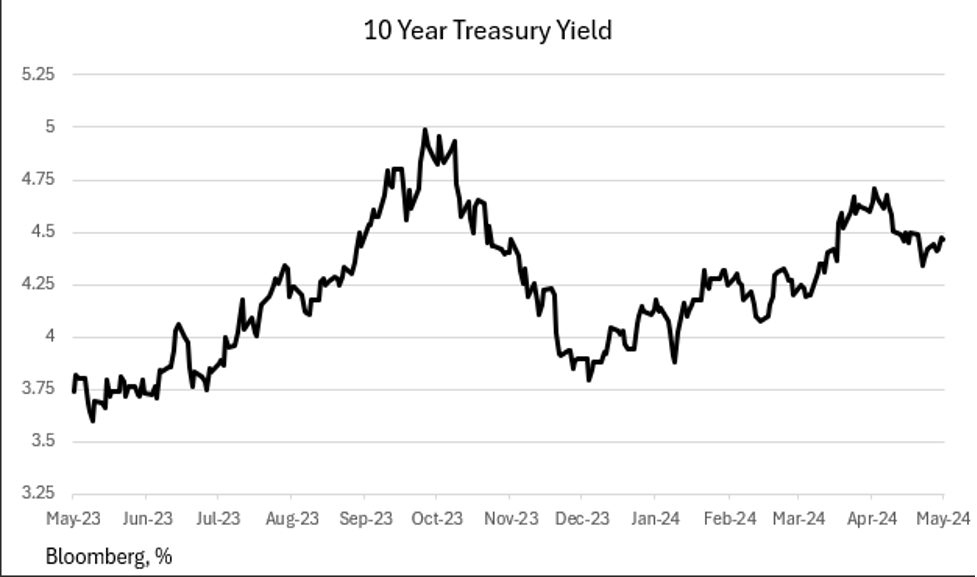Financial markets closed the week with mixed results, as the Nasdaq rose by 1.4% to reach a record high, thanks to Nvidia’s strong performance. In contrast, the S&P 500 remained flat, while the Dow Jones experienced a significant decrease of 2.3%. Concerns over incoming economic data and hawkish talk from FOMC speakers led to an 11 basis point increase in the 10-year Treasury yield over the past eight business days.
The incoming data suggests that higher interest rates, inflation, and stagnant wage growth have impacted American consumers. Inflation is primarily driven by rising shelter costs and auto insurance prices, with other items experiencing minimal inflation. The consumer spending has slowed, as reflected in comments from major retailers like Walmart, Target, and McDonald’s, indicating that consumers are allocating more of their paychecks to non-discretionary categories.
The Federal Reserve’s policy decisions appear to be based on lagging indicators, potentially causing delays in addressing the economic challenges faced by consumers. Leading indicators have been negative since mid-2022, and consumers have depleted their excess savings, leading to flatlining retail sales and a rise in loan delinquencies. Mortgage refinance activities have surged, suggesting that consumers are struggling to manage their bills amid rising financial pressures.
Housing, a crucial contributor to GDP, is also feeling the impact of higher interest rates, with new home sales declining, inventories increasing, and prices falling. GDP growth in Q1 dropped to 1.6%, and forecasts for Q2 have been revised downward by regional Federal Reserve banks. Commercial Real Estate (CRE) foreclosures have continued, signaling challenges for private equity funds and banks with significant CRE loan portfolios.
Overall, the equity market is showing signs of softening, with the consumer feeling the financial strain. Consumers are resorting to borrowing on credit card lines and seeking home loan refinancing to manage their finances. Major retailers have noted a shift in consumer spending behavior, and the housing market is showing signs of slowing down. While a decrease in interest rates could potentially stimulate the housing market, CRE foreclosures suggest deeper economic challenges ahead.


